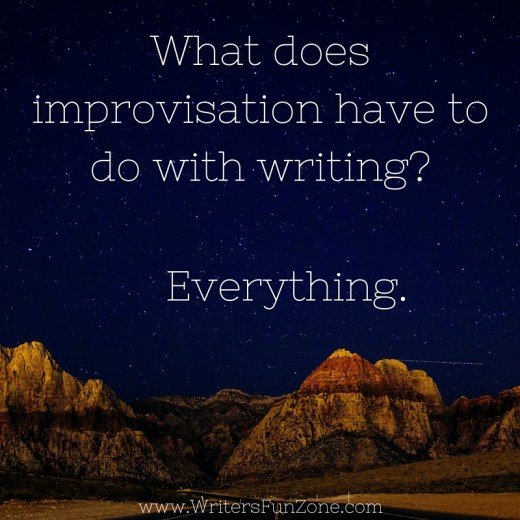Tags in Dialogue
Welcome back guest columnist, Bobbye Terry, as she reveals how to use “he said/she said” in dialogue. Her example of before and after is quite useful to see when to use “said” and when to use action tags. We hope this helps fiction writers everywhere. Take it away Bobbye!
^*^
or:
Tagging Along
If you’re a writer, you know what a tag is. It’s that little statement at the end of dialogue that indicates who is speaking. For instance, in this snippet of dialogue, “I am going for a walk,” she said, she said is the tag. Most believe that using said for the majority of tags is the best word, because readers skip over the phrase without consciously noting it’s there, unlike other words such as answered or told or responded.
Writers can also get in bad habits by adding a bunch of action to the tag. An example would be:
“Don’t you ever come back,” she screamed as she threw a hair brush at him and missed, hitting the wall.
It’s much better to separate the two, and in this case, get rid of the tag altogether.
“Don’t you ever come back.” She threw her hair brush at him and grimaced as it missed and hit the wall.
If you have three or more characters in a scene, you will need to use occasional tags and use the names of the characters more often instead of the pronouns he and she to identify which he or she is speaking.
Here is a short example from Coming to Climax, my suspense novel coming in September:
“Nice to meet you, Mr. Carroll.” Margaret walked forward to shake his hand. She handed a small brown bag to her friend. “Here’s your vanilla, Cindy.”
“Thanks.” Cindy took the bag. “Actually, he’s Doctor Carroll.”
“Nice to meet you, Ms. Palmer.” The man shook hands with her, a solemn expression on his face.
“Are you the local Family Practitioner?”
“I am if I’m helping your pet.”
Cindy laughed. “He’s a vet. Chris and I were just talking about a young guy who got shot.”
“You’re the vet who patched up Andy and Carolina? Thanks so very much.” She shivered. Maybe one more valium was a good idea . . .
“I knew it was Carolina,” Cindy said. “Just didn’t want to blurt it out in case you hadn’t seen her yet.”
“It’s okay. I just left her. All the time I kept thinking the person who shot Andy and nicked Carolina’s ear might be the same guy who killed those men.” Margaret sat down in a chair. “It makes me positively weak-kneed just thinking about it.”
“I hope they reported it to the sheriff. Please tell your niece I don’t think that was a stray bullet from a hunter.” He glanced back at Cindy. “Well, got to go. Kate says I have a Beagle with diarrhea and a Lab puppy who ate part of a garden hose waiting on me.”
Though the conversation changed back and forth ten times, only one tag was used.
If there are only two people in a scene, you know by your paragraph breaks who is speaking. Tags can be minimal or not there at all if you replace them with action by the character. Here’s an example from my latest Briny Bay mystery, The Marriage Murders, with tags and then without them.
With the tags:
“I hear you,” Trixie said. “Just how much extra-curricular activity have you done anyway?”
“As in sex?” Roxie asked.
Trixie sighed. “No, I meant Scrabble,” she said. “Of course I meant sex, you ditz.”
Roxie’s eyes narrowed and said, “Don’t demean me.”
“Stop the temper tantrum,” Trixie said. “I got tired of that when you were six. Spill. Have you two been to bed?”
“The time just hasn’t been right,” Roxie said.
“Bingo!” Trixie exclaimed. “Men’s minds wander at date six or earlier. Mark my words, he’s off shopping the catalogues, not admiring the old purchase.”
“Between you and Greg, I’m starting to feel like I’m ready for the glue factory,” Roxie said.
Trixie leaned down and stared into her sister’s eyes. “What’s with you?” she asked. “You’re the one who made whoopee with a California foreigner in a shed and Greg who is the obvious recipient of your pitty-pats doesn’t get as much as a bounce on the bed?”
“It’s because I admire him a lot,” she said.
“Admire is something you do to a president or a Mother Theresa or a Nelson Mandela, but it sure ain’t what you want to do to your sweetheart,” Trixie told her. “Not unless you’re laid back in a euphoric fog, smiling at how much you admire his motion of the ocean.”
“Motion of the ocean?” she asked.
Trixie shrugged and said, “You know it’s not the size of the wave, but the…”
“Right, got it,” Roxie said. “You are such a nag. You know how I am. It’s just like how I was about Christmas when I was a little girl. You’d already sneaked and opened all your presents and wrapped them back up, but I wanted to open one at a time during the day. ”
“I shoulda’ caught on you were brain-damaged then,” Trixie told her. “Get the car in gear sugar, or your sweetie will be trading you in on a new model.”
Removing the tags:
“I hear you.” Trixie placed one hand on her sister’s shoulder. “I suggest you get his mind off kids. Just how much extra-curricular activity have you done anyway?”
“As in sex?”
Trixie sighed. “No, I meant Scrabble. Of course I meant sex, you ditz.”
Roxie’s eyes narrowed. “Don’t demean me.”
“Stop the temper tantrum. I got tired of that when you were six. Spill. Have you two been to bed?”
Roxie stared at the floor. “The time just hasn’t been right.”
Trixie slapped the counter. “Bingo! Men’s minds wander at date six or earlier. Mark my words, he’s off shopping the catalogues, not admiring the old purchase.”
“Between you and Greg, I’m starting to feel like I’m ready for the glue factory.”
Trixie leaned down and stared into her sister’s eyes. “What’s with you? You’re the one who made whoopee with a California foreigner in a shed and Greg who is the obvious recipient of your pitty-pats doesn’t get as much as a bounce on the bed?”
Roxie bit her lip. “It’s because I admire him a lot.”
“Admire is something you do to a president or a Mother Theresa or a Nelson Mandela, but it sure ain’t what you want to do to your sweetheart. Not unless you’re laid back in a euphoric fog, smiling at how much you admire his motion of the ocean.”
Roxie looked up. “Motion of the ocean?”
Trixie shrugged. “You know it’s not the size of the wave, but the…”
“Right, got it.” Roxie exhaled. “You are such a nag. You know how I am. It’s just like how I was about Christmas when I was a little girl. You’d already sneaked and opened all your presents and wrapped them back up, but I wanted to open one at a time during the day. ”
“I shoulda’ caught on you were brain-damaged then. Get the car in gear sugar, or your sweetie will be trading you in on a new model.”
I hope this helps any beginning writers out there and would love to hear from readers as well.
^*^
Bobbye Terry writes mystery/suspense, romance, fantasies and dystopian fiction. The Marriage Murders, Bobbye’s Book 2 in the Briny Bay Mysteries series, was just released. Bobbye and Linda Campbell, writing as Terry Campbell, have a new cozy mystery short story collection, Slam Sisters of Serendipity, that released through Eternal Press. For more about Bobbye, visit her at www.BobbyeTerry-MysteryHappens.com and www.BobbyeTerryRomance.com .








Great examples of correct ways to tag dialogue. I had to learn this the hard way. When I first submitted The Waiting Booth, my editor said that I needed to work on my dialogue tags. If only I had read this post a couple of years ago. 🙂
I agree! My first pages I submitted to my critique group were straight conversation. Joselyn Vaughn set me straight on how to incorporate action.
Thanks for the review, Bobbye! It’s a big help.